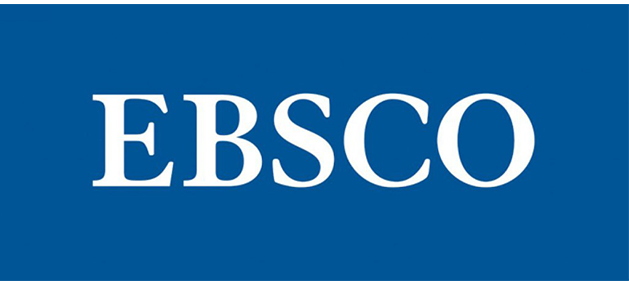RESILIENCE AND KNOWLEDGE-BASED FIRMS PERFORMANCE: THE MEDIATING ROLE OF ENTREPRENEURIAL THINKING
Keywords:
Resilience, Entrepreneurial Thinking, Performance, Knowledge-based FirmsAbstract
Resilient organisations tolerate challenges and provide them with growth and survival in complex environments. Therefore, the present study aimed to investigate the effect of resilience on the performance of knowledge companies based on information technology by considering the mediation role of entrepreneurial thinking in Iranian science and technology parks. Data were collected using a questionnaire with a Likert scale from a sample of 172 students who were executives of the selected knowledge-based companies. Data analysis was performed with a structural equation modelling approach using Smart PLS 3 software. The research findings indicated a positive and significant increase in the performance of knowledge-based companies by the mediation of entrepreneurial thinking. According to the findings, companies can be equipped with their dynamics and structural trust and process continuity. Since it is not enough to have structural trust capabilities, companies that survive and succeed in the long run should also have dynamic capabilities. Paying attention to the dynamic capabilities of knowledge-based companies, if not accompanied by considering structural trust capabilities, is ineffective because its impact would be reduced.
References
Arayesh, M.B., Golmohammadi, E, Nekooeezadeh, M., & Mansouri, A. (2017). The effects of organisational culture on the development of strategic thinking at the organisational level. International Journal of Organizational Leadership, 6(2), p. 261.
Bandura, A. (1982). Self-efficacy mechanism in human agency. American psychologist, 37(2), p. 122.
Chepkoit, B. K. (2017). Exploring Strategic Business Continuity Planning Methods for Small Businesses in the State of Maryland (Doctoral dissertation, Northcentral University).
Dana, L. P., Tajpour, M., Salamzadeh, A., Hosseini, E., & Zolfaghari, M. (2021). The Impact of Entrepreneurial Education on Technology-Based Enterprises Development: The Mediating Role of Motivation. Administrative Sciences, 11(4), p. 105.
Das, T., & Teng, B.S., (2001). A risk perception model of alliance structuring. Journal of international management, 7(1), pp. 1-29.
Ebrahimi, P., Ahmadi, M., Gholampour, A., & Alipour, H. (2019). CRM performance and development of media entrepreneurship in digital, social media and mobile commerce. International Journal of Emerging Markets.
Endsley, M. R. (2019). The divergence of objective and subjective situation awareness: A meta-analysis. Journal of Cognitive Engineering and Decision Making, 1555343419874248.
Fereidooni, Iraj (2014). Entrepreneurial Strategic Thinking Strategic Thinking Entrepreneurial Mindset Entrepreneurship on the context of Strategic Thinking.
Fiksel, J. (2015). Resiliby Design: Creating Businesses That Adapt and Flourish in a Changing World: Island Press
Folke, C. (2002). Social-ecological resilience and behavioural responses: Beijer International Institute of Ecological Economics.
Fornell, C., & Larcker, D. F. (1981). Evaluating structural equation models with unobservable variables and measurement error. Journal of marketing research, 18(1), pp. 39-50.
Goodarzi, S. M., Salamzadeh, Y., & Salamzadeh, A. (2018). The impact of business ethics on entrepreneurial attitude of manager. In Competitiveness in emerging markets (pp. 503-539). Springer, Cham.
Haines, Stephen. (2016). The systems thinking approach to strategic planning and management: CRC Press.
Hair Jr, J. F., Sarstedt, M., Ringle, C. M., & Gudergan, S. P. (2017). Advanced issues in partial least squares structural equation modelling: Sage publications.
Hameed, N. S. S., Salamzadeh, Y., Rahim, N. F. A., & Salamzadeh, A. (2021). The impact of business process reengineering on organizational performance during the coronavirus pandemic: moderating role of strategic thinking. Foresight.
Harandi, A. (2017). Investigating the effects of strategic intelligence on strategic improvisation and agility in its knowledge-based firms, 5(2), pp. 147-169.
Helfat, C. E., & Martin, J. A. (2015). Dynamic managerial capabilities: Review and assessment of managerial impact on strategic change. Journal of Management, 41(5), pp. 1281-1312.
Helfat, C., Finkelstein, S., Mitchell, W., Peteraf, M., Singh, H., Teece, D., & Winter, S. (2007). Dynamic Capabilities. Understanding Strategic Change in Organisations. Blackwell Publishing: Malden, MA
Hiles, A. (2010). The definitive handbook of business continuity management: John Wiley & Sons.
Hofstede, G., Neuijen, B., Ohayv, D. D., & Sanders, G. (1990). Measuring organisational cultures: A qualitative and quantitative study across twenty cases. Administrative science quarterly, pp. 286-316.
Hosseini, E., Saeida Ardekani, &Sabokro, M. (2020). Presentation the Pattern of Knowledge Employees Voice (Case Study: Shiraz Gas Company Employees). Quarterly Journal of Public Organizations Management, 8(4), pp. 57-72.
Hosseini, E., Tajpour, M., & Lashkarbooluki, M. (2020). The impact of entrepreneurial skills on manager’s job performance. International Journal of Human Capital in Urban Management, 5(4), pp. 361-372.
Hosseini, E., Nabaei, A.M., Hajian, F., & Hamidpour, N. (2017). Investigating the Culture Impact on Organizational Resilience in Organizational Enterprise area (A Case Study of Iran’s Ministry of Communication and Technology). International Journal of Management Sciences and Business Research. 6(12), pp. 27-35.
House, R. J., Hanges, P. J., Javidan, M., Dorfman, P. W., & Gupta, V. (2004). Culture, leadership, and organisations: The GLOBE study of 62 societies: Sage publications.
House, R., Javidan, M., Hanges, P., & Dorfman, P. (2002). Understanding cultures and implicit leadership theories across the globe: an introduction to project GLOBE. Journal of world business, 37(1), pp. 3-10.
Hulland, J. (1999). Use of partial least squares (PLS) in strategic management research: a review of four recent studies. Strategic management journal, 20(2), pp. 195-204.
Jiang, W., Chai, H., Shao, J., & Feng, T. (2018). Green entrepreneurial orientation for enhancing firm performance: A dynamic capability perspective. Journal of cleaner production, 198, pp. 1311-1323.
Kato, M., & Charoenrat, T. (2018). Business continuity management of small and medium sized enterprises: Evidence from Thailand. International journal of disaster risk reduction, 27, pp. 577-587.
Kawamorita, H., Salamzadeh, A., Demiryurek, K., & Ghajarzadeh, M. (2020). Entrepreneurial universities in times of crisis: Case of COVID-19 pandemic. Journal of Entrepreneurship, Business and Economics, 8(1), pp. 77-88.
Krishnan, T., & Scullion, H. (2017). Talent management and dynamic view of talent in small and medium enterprises. Human Resource Management Review, 27(3), pp. 431-441.
Lavoine, N. (2022). Fostering Entrepreneurial Thinking in Biomaterials Education. BioResources, 17(1), pp. 1-2.
Lengnick-Hall, C. A., Beck, T. E., & Lengnick-Hall, M. L. (2011). Developing a capacity for organisational resilience through strategic human resource management. Human resource management review, 21(3), pp. 243-255.
Lengnick-Hall, C., & Beck, T. (2009). Resilience capacity and strategic agility: prerequisites for thriving in a dynamic environment (2009). In.
Lewis, J. (2013). Some realities of resilience: A case-study of Wittenberge. Disaster Prevention and Management, 22(1), pp. 48-62.
Lewis, L. (2019). Organisational change: Wiley Online Library.
Li, Y., & Zahra, S. A. (2012). Formal institutions, culture, and venture capital activity: A cross-country analysis. Journal of business venturing, 27(1), pp. 95- 111.
Ling, Y., López-Fernández, M. C., Serrano-Bedia, A. M., & Kellermanns, F. W. (2020). Organisational culture and entrepreneurial orientation: examination through a new conceptualisation lens. International Entrepreneurship and Management Journal, 16(2), pp. 709-737.
Linnenluecke, M. K., Griffiths, A., & Winn, M. (2012). Extreme weather events and the critical importance of anticipatory adaptation and organisational resilience in responding to impacts. Business Strategy and the Environment, 21(1), pp. 17-32.
Luthans, F., & Youssef, C. M. (2007). Emerging positive organisational behaviour. Journal of management, 33(3), pp. 321-349.
Mahmood, R., & Bakar, H. A. (2016). Examining strategic improvisation and performance relationship in the semes: moderating role of entrepreneurial selfefficacy. International Business Management, 10(13), pp. 2535-2540.
Matt, M. (2019). Start-up statistics ± The Numbers You Need to Know. Small Business Trends. Mar 28, available at: https://smallbiztrends.com/2019/03/startup-statistics-small-business.html.
McDaniels, T., Chang, S., Cole, D., Mikawoz, J., & Longstaff, H. (2008). Fostering resilience to extreme events within infrastructure systems: Characterising decision contexts for mitigation and adaptation. Global Environmental Change, 18(2), pp. 310-318.
McManus, S., Seville, E., Vargo, J., & Brunsdon, D. (2008). Facilitated process for improving organisational resilience. Natural Hazards Review, 9(2), pp. 81-90.
Merrow, S., & Newell, J. P. (2019). Urban resilience for whom, what, when, where, and why? Urban Geography, 40(3), pp. 309-329.
Moorman, C., & Miner, A.S. (1998). The convergence of planning and execution: improvisation in new product development, Journal of Marketing, 62(3), pp. 1-20.
Mumby, P. J., Chollett, I., Bozec, Y.-M., & Wolff, N. H. (2014). Ecological resilience, robustness and vulnerability: how do these concepts benefit ecosystem management? Current Opinion in Environmental Sustainability, 7, pp. 22-27.
Murray-Tuite, P. M. (2006). A comparison of transportation network resilience under simulated system optimum and user equilibrium conditions. Paper presented at the Proceedings of the 2006 Winter Simulation Conference.
Nazempour, R., Yang, J., & Waheed, A. (2020). An Empirical Study to Understand the Effect of Supply Chain Agility on Organizational Operational Performance: SC Agility and Organizational Performance. In Supply Chain and Logistics Management: Concepts, Methodologies, Tools, and Applications (pp. 1608-1630): IGI Global.
Neupane, P. A. (2019). NETWORKS AND INTERNATIONALISATION IN HIGHER EDUCATION: A CASE STUDY. (Doctoral dissertation). University Boston, North-eastern.
Nikraftar, T., Hosseini, E. (2021). The effect of auditing on business performance by modulating organisational culture in knowledge-based companies in the field of information technology. Journal of Research on Management of Teaching in Marine Sciences, a head of print. doi: 10.22034/rmt.2021.522505.1762
Nikraftar, T., Hosseini, E., & Mohammadi, E. (2021). The factors influencing technological entrepreneurship in nanotechnology businesses. Revista de Gestão.
Pal, I., & Bhatia, S. (2018). Disaster risk governance and city resilience in AsiaPacific region. In Science and Technology in Disaster Risk Reduction in Asia (pp. 137-159): Elsevier.
Pereira, J., Braga, V., Correia, A., & Salamzadeh, A. (2021). Unboxing organisational complexity: how does it affect business performance during the COVID-19 pandemic? Journal of Entrepreneurship and Public Policy, 10(3), pp. 424-444.
Peschl, H., Deng, C., & Larson, N. (2021). Entrepreneurial thinking: A signature pedagogy for an uncertain 21st century. The International Journal of Management Education, 19(1), 100427.
Quendler, E. (2017). Organisational resilience: building business value in a changing world. Journal for International Business and Entrepreneurship Development, 10(2), pp. 101-119.
Radović-Marković, M. (2018). Resilience of small and medium-sized enterprises in terms of globalisation: evidence of Serbia. International journal of entrepreneurship, 22(3), pp. 1-7.
Radović-Marković, M. (2021). Resilience and Entrepreneurship. In Entrepreneurship and Work in the Gig Economy (pp. 77-89). Routledge.
Radović-Marković, M., Salamzadeh, A., & Razvi, M. (2013). Women in business and leadership: critiques and discussions. In The Second International Scientific Conference on Employment, Education and Entrepreneurship, Belgrade, Serbia (pp. 19-31).
Radović-Marković, M., Salamzadeh, A., & Vujičić, S. (2019). Selection of organisation models and creation of competences of the employed people for the sake of competitiveness growth in global business environment. International Review, (1-2), pp. 64-71.
Radović-Markovič, M., Shoaib Farooq, M., & Marković, D. (2017). Strengthening the resilience of small and medium-sized enterprises. Review of applied socio-economic research, pp. 345-356.
RahmanSeresht, H., Dehdashti Shahrikh, Z., khashei, V., Doustmohammadian, S. (2020). Towards a resilience model for ICT start-ups (Mix method). Journal of Entrepreneurship Development, 12(4), 621-640.
Rastgar, A., bagheri garbollagh, H., eynali, M. (2020). Analyse the Role of Strategic Initiative and Resilience in Organizational Performance. Journal of Strategic Management Studies, 10(40), pp. 107-128.
Rokhide, M., Ebrahimi, A., Khomeshaya, A. (2019). Interpretative Structural Modelling of the Effective Factors on Business Continuity Management in Small and Medium Enterprises. Commercial Surveys, 17(97), pp. 114-130.
Salamzadeh, A. (2020). Five approaches toward presenting qualitative findings. Journal of the International Academy for Case Studies, 26(3), pp. 1-2.
Salamzadeh, A., Arasti, Z., & Elyasi, G. M. (2017). Creation of ICT-based social start-ups in Iran: A multiple case study. Journal of Enterprising Culture, 25(1), pp. 97-122.
Salamzadeh, A., Azimi, M. A., & Kirby, D. A. (2013). Social entrepreneurship education in higher education: insights from a developing country. International Journal of Entrepreneurship and Small Business, 20(1), pp. 17-34.
Salamzadeh, A., & Dana, L. P. (2021). The coronavirus (COVID-19) pandemic: challenges among Iranian start-ups. Journal of Small Business & Entrepreneurship, 33(5), pp. 489-512.
Salamzadeh, A., & Tajpour, M. (2021). Identification of the Challenges of Media Start-up Creation in Iran. Journal of Entrepreneurship Development, 13(4), pp. 561-580.
Salamzadeh, A., Tajpour, M., & Hosseini, E. (2019). Corporate entrepreneurship in University of Tehran: does human resources management matter? International Journal of Knowledge-Based Development, 10(3), pp. 276-292.
Salamzadeh, A., Tajpour, M., Hosseini, E. and Salembrahmi, M. (2021) ‘Human capital and the performance of Iranian digital start-ups: the moderating role of knowledge sharing behaviour’, International Journal of Public Sector Performance Management, ahead of print.
Saraniemi, S. (2010). Destination brand identity development and value system. Tourism Review.
Satari, S., & Ghanbari, S. (2016). Comparing the Effectiveness of Management in Co-Operator Schools with Public Schools in Ardabil. Journal of School Administration, 4(1), pp. 87-105.
Shanker, R., Bhanugopan, R., Van der Heijden, B. I., & Farrell, M. (2017). Organisational climate for innovation and organisational performance: The mediating effect of innovative work behaviour. Journal of vocational behaviour, 100, pp. 67-77.
Shepherd, Dean A. (2016). Thinking Entrepreneurially to Identify Research Opportunities the Aspiring Entrepreneurship Scholar (pp. 7-23): Springer.
Sousa, M. J., & Rocha, Á. (2019). Strategic Knowledge Management in the Digital Age: JBR Special Issue Editorial. In: Elsevier.
Starr, R., Newfrock, J., & Delurey, M. (2003). Enterprise resilience: managing risk in the networked economy. Strategy and Business, 30, pp. 70-79.
Supriadi, L. S. R., & Pheng, L. S. (2018). Business continuity management in construction. Springer Singapore.
Tajpour, M., & Hosseini, E. (2020). The Effect of Intelligence and Organizational Culture on Corporate Entrepreneurship in Shiraz Gas Compa. Human Resource Management in The Oil Industry, 12(45), pp. 335-354.
Tajpour, M., & Hosseini, E. (2021). Entrepreneurial intention and the performance of digital start-ups: The mediating role of social media. Journal of Content, Community & Communication, 13, pp. 2-15.
Tajpour, M., & Hosseini, E. (2021). Towards the Creative-Oriented University. Journal of Business Strategy Finance and Management, 2(1, 2).
Tajpour, M., Demiryurek, K., & Abaci, N. I. (2021). Design the pattern of increasing satisfaction for international students: a qualitative study with the grounded theory approach. International Journal of Management in Education, 15(5), pp. 458-476.
Tajpour, M., Hosseini, E. and Salembrahmi, M. (2021). Effect of International Entrepreneurship Indicators on Innovative Performance: The mediating role of Motivation. International Journal of Technology Transfer and Commercialisation. ahead of print.
Tajpour, M., Hosseini, E., & Salamzadeh, A. (2020). The effect of innovation components on organisational performance: case of the governorate of Golestan Province. International Journal of Public Sector Performance Management, 6(6), pp. 817-830.
Tajpour, M., Salamzadeh, A., & Hosseini, E. (2021) Job Satisfaction in IT Department of Mellat Bank: Does Employer Brand Matter? IPSI BgD Transactions on Internet Research, 17(1): pp. 15-21
Teece, D. J. (2007). Explicating dynamic capabilities: the nature and micro foundations of (sustainable) enterprise performance. Strategic management journal, 28(13), pp. 1319-1350.
Vogus, T. J., Rothman, N. B., Sutcliffe, K. M., & Weick, K. E. (2014). The affective foundations of highဨreliability organising. Journal of Organizational Behaviour, 35(4), pp. 592-596.
Weick, K. E., & Sutcliffe, K. M. (2001). Managing the Unexpected: Assuring High Performance in an Age of Complexity, published by JosseyBass, a John Wiley & Sons. Inc. Company.
Winnard, J., Adcroft, A., Lee, J., & Skipp, D. (2014). Surviving or flourishing? Integrating business resilience and sustainability. Journal of strategy and management, 7(3), pp. 303-315.
Wu, D. (2009). Measuring performance in small and medium enterprises in the information and communication technology industries.
You, J. (2021). Exploring Organisational Resilience from an Inter-organisational Perspective: Relational Resilience based on Business Ecosystems in China (Doctoral dissertation, Durham University).
Downloads
Published
How to Cite
Issue
Section
License

This work is licensed under a Creative Commons Attribution 4.0 International License.
http://creativecommons.org/licenses/by-nc-nd/4.0














